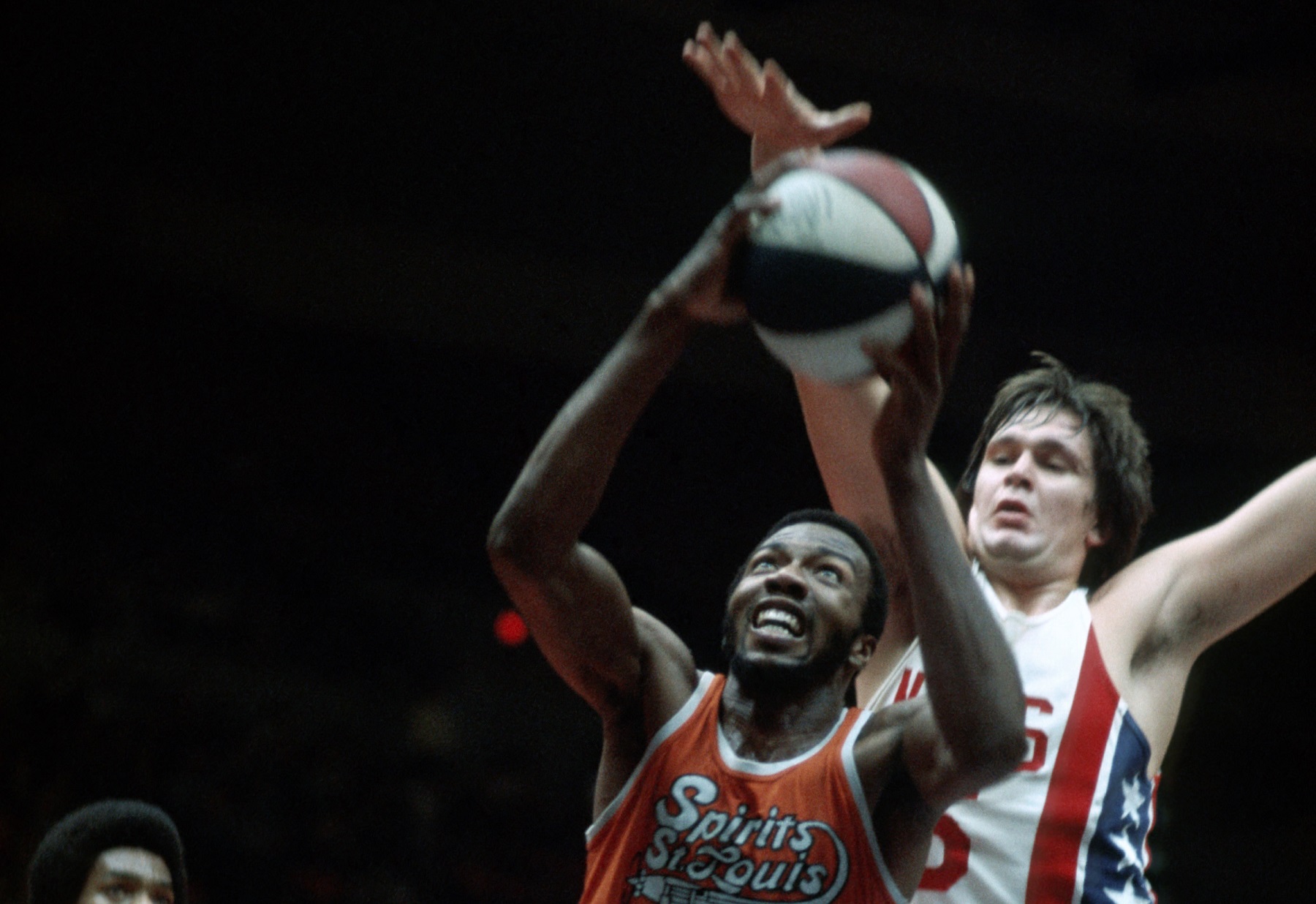NBA
Future NBA Player Marvin ‘Bad News’ Barnes Was Caught in the Most Inept Robbery Attempt Ever

Earvin “Magic” Johnson, George “The Iceman” Gervin, and “Pistol” Pete Maravich were NBA players who carried nicknames that fit their games during stellar basketball careers. Marvin Barnes went one better: He had the nickname that fit his life.
He wasn’t merely Marvin Barnes. He was Marvin “Bad News” Barnes, and he could have had a great pro career if not for drug problems and brushes with the law. His first arrest told the world that Barnes’ time in the sport wouldn’t last much longer than that of dogs that chase cars.
It was the most poorly thought-out robbery attempt ever.
Marvin Barnes appeared destined for stardom
RELATED: Dennis Rodman Had To Pay a Record-Setting $50,000 Fine After Cursing Out an Entire Religion
At 6-foot-8 and 210 pounds, Marvin Barnes could run the court all night long – and often did – in three seasons at Providence College in the early 1970s. Barnes averaged 35.2 minutes for his 89 career games, and his production was superb. Barnes averaged 20.7 points, 17.9 rebounds, and 2.7 assists per game. He was a high-volume shooter at times, but he was also usually the best player on the court.
In 1973, he teamed with dazzling guard Ernie DiGregorio to lead the Friars to the NCAA Tournament semifinals. It capped a season on which he averaged 18.3 points and an amazing 19.0 rebounds per game. In his final season, Barnes averaged 22.1 points and 18.7 boards, leading to his selection in the NBA draft by the Philadelphia 76ers, one spot behind No. 1 pick Bill Walton.
Unhappy with the 76ers’ offer, Barnes signed with the fledgling ABA. In two seasons with the Spirits of St. Louis, Barnes established himself as a potential Hall of Fame forward by averaging 24.1 points and 13.4 rebounds while playing a huge number of minutes and shooting 50.0%.
It would be downhill from there – and rapidly so – as the remainder of Barnes’ career consisted of four NBA teams in four seasons.
There were too many brushes with the law
RELATED: Phoenix Suns Forward Mikal Bridges Eats Free at Chipotle Every Day
The thing about Marvin “Bad News” Barnes was that just about every team knew that Barnes’ off-the-court behavior would affect what he did on the court.
One of his more chronicled brushes with the law came while Barnes was still at Providence College. Days before the Friars bowed out to Memphis State in the 1973 NCAA Tournament semifinals, Barnes assaulted Larry Ketvirtis with a tire iron after he became irritated by his teammate’s physical play in practice. It kept Ketvirtis out of the Final Four.
Barnes received probation for the assault conviction and reportedly paid Ketvirtis $10,000 in restitution. However, he violated that probation in October 1976 by carrying an unloaded gun in his luggage during an airport check-in. That cost Barnes five months on the Rhode Island prison system, and he reported to the NBA’s Detroit Pistons a month into the season.
From there, Barnes quickly became a journeyman with stints on the Buffalo Braves, Boston Celtics, and San Diego Clippers. He confessed to using cocaine on the bench with the Celtics, according to the New York Times, and his NBA career consisted of 9.2 points a game in 171 contests before heading to Italy for the 1980-81 season.
Marvin Barnes’ life of crime got off to an inauspicious start
RELATED: Nikola Jokic Is Twice as Clutch as Lebron James, and the Numbers Prove It
Marvin “Bad News” Barnes, who died in 2014 at the age of 62, never made it to the Naismith Memorial Basketball Hall of Fame. Had there been a hall of fame for inept robbery attempts by a juvenile, Barnes would have been a first-ballot inductee.
Barnes was born in North Kingstown, Rhode Island, and grew up in Providence, where he led Central High to state championships and was labeled by The Providence Journal as the city’s greatest basketball talent ever.
Along the way, however, Barnes fell in with some bad company. In one incident while a senior in high school, he joined several other youths in attempting to pull off a robbery by commandeering a bus.
Sports Illustrated explained where things went wrong for Barnes:
“Aside from being 6’5″ and a local celebrity, Barnes had the bad judgment to be wearing a jacket that had ‘State Champions’ and ‘Marvin’ written in script across the front.”
“Marvin could always be talked into doing a lot of things,” said Jim Adams, his coach in high school. “He never had a mind of his own.”
Like Sportscasting on Facebook. Follow us on Twitter @sportscasting19.











